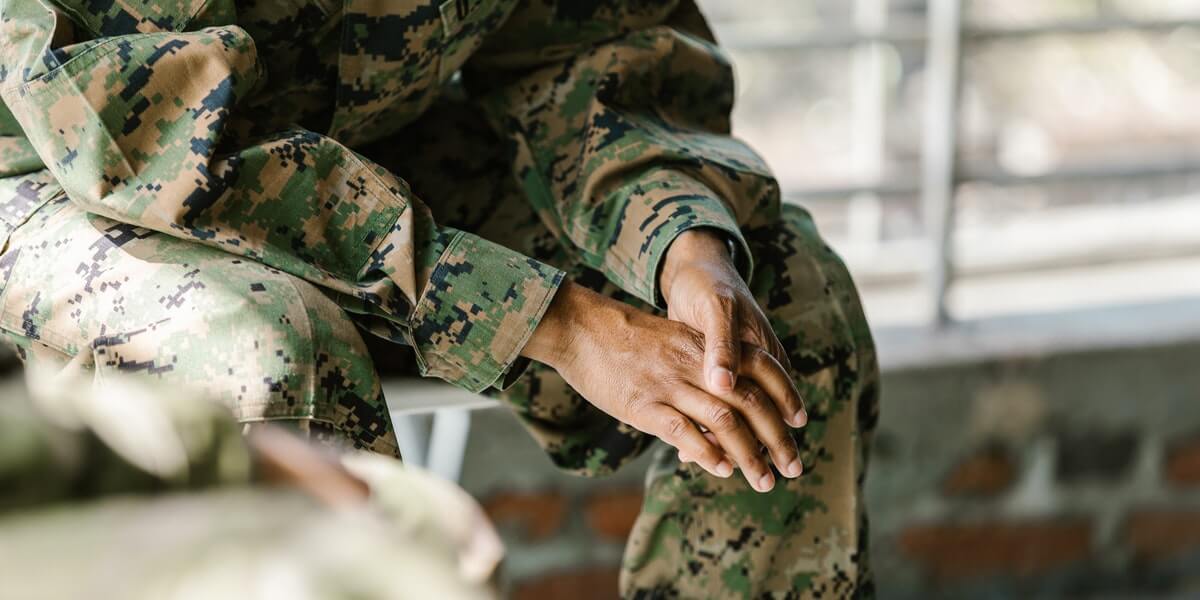The Uniform Code of Military Justice (“UCMJ”) was enacted by Congress to provide substantive and procedural laws governing the military justice system, including crimes in the military. However, beyond simply listing the various crimes that are punishable, the UMCJ also sets forth the scope and jurisdiction of military law.
While, broadly speaking, the UCMJ can apply to individuals connected to the armed forces—current service members, veterans, and military retirees, to name a few—the law isn’t as straightforward as it seems when deciding whether an individual can be charged or not. Whether military justice applies in a certain situation depends entirely on the specific individual and their relationship with the military, with the trickiest aspect applying to military retirees.
While it is usually reserved for charging active-duty service members, certain legal cases have become controversial in recent years that are challenging longstanding traditions, which could have a significant impact on military veterans.
Who does the UMCJ apply to?
The UCMJ is applicable to those who are presently serving in the armed forces on active duty, students who are enrolled in a federal service academy, and prisoners of war. Also, the UCMJ applies to both National Guard and Reserve members in inactive duty training. Moreover, the UCMJ applies to contractors and other individuals serving or accompanying an armed force in the field.
Traditionally, the UCMJ does not apply to veterans. More specifically, veterans cannot be court-martialed if they were discharged from active duty before reaching 20 years of service or retired from the reserves and are not entitled to any form of retirement pay until age 60.
That being said, there are two groups of retirees that are treated like active-duty members and can be charged under the UCMJ: active-duty veterans who retired from the armed forces and are entitled to immediate retirement pay, and Navy-Marine Corps Fleet Reservists who retired between 20 and 30 years of service. Because certain military retirees continue to earn “retainer pay” and Fleet Reserve members can be called back to service at any time, government prosecutors contend they are subject to the UCMJ. Prosecutors also argue that court-martial authority is vital because it allows the government to prosecute those who refuse to return to service.
Why Does UCMJ Jurisdiction Matter?
Courts-martial and civilian courts have significant differences since courts-martial are not subject to many of the basic protections in the Constitution or Bill of Rights. One of the main differences is not having the right to a trial by a jury of peers. Instead, they are tried by a member panel consisting of other service members who are equal to or superior in rank to the accused.
Additionally, while civilian courts require that verdicts be handed down by a unanimous jury, a verdict under the UCMJ only requires a three-fourths majority to convict in all but the most egregious cases. Lastly, a conviction under the UCMJ may lead to a dishonorable discharge or bad conduct discharge, which may have an impact on future military benefits, job prospects, and other facets of civilian life.
Recent Cases
Former service members are now increasingly being called back to active duty to answer charges under the UCMJ, despite it not being a typical practice in the past. It seems as though military prosecutors’ approaches to expanding their purview has changed. Consider the following examples of veterans who have recently been court-martialed and are fighting back against the UCMJ’s long-standing rules.
In Larrabee v. Braithwaite, a retired Marine Staff Sergeant, Steven Larrabee, was convicted of sexually assaulting a fellow bartender, the wife of an active-duty Marine, and videotaping the encounter on his cell phone while she was unconscious. This occurred in 2015, only three months after he retired and accepted a job in the private sector in Iwakuni, Japan. Larrabee eventually pleaded guilty to sexual assault and indecent recording. He then appealed his conviction to the Supreme Court, but in the early months of 2019, the justices decided not to hear the case. When the court declined to hear the case, his conviction stood. However, a federal judge in DC agreed with Larrabee that his military conviction was unconstitutional in 2020. It is possible the Supreme Court could grant certiorari and agree to review the case, but it has yet to be confirmed or denied.
United States v. Dinger is another instance involving a retiree who was sent back to face UCMJ charges. Marine Gunnery Sergeant Derek Dinger was employed as a civilian contractor in Okinawa when the Naval Criminal Investigative Service detained him for downloading and spreading child pornography. He had been retired for over ten years. Despite being found guilty, Dinger appealed the verdict to the Navy-Marine Corps Court of Criminal Appeals in 2018. His conviction under the UCMJ was upheld by the Court. After being found guilty, Dinger appealed the verdict to the Supreme Court, which turned down the opportunity to hear his case.
Issues like these where retired service members and veterans are called back to be prosecuted using the UCMJ are only expected to continue increasing; a case in point are the recent reports of current service personnel, veterans, and some military retirees present during the January 6 events at the US Capitol. These reports have prompted investigations into those members and could potentially lead to their being prosecuted under the UCMJ.
Regardless, if you are a retired service member or veteran who has been charged under the UCMJ, it is important to understand that there are different procedures and severe consequences that could have a negative impact on your benefits and rights following your time serving our country.
Chad Lennon is an attorney in the military law practice at Tully Rinckey PLLC, and a Major in the Marine Corps Reserve. Concurrently, he is the Co-Chair for the New York State Bar Association Committee on Veterans, Board of Director for the Suffolk County Bar Association and is an Officer for the Suffolk County Bar Association Academy of Law. He can be reached at (888)-529-4543 or at info@tullylegal.com.








